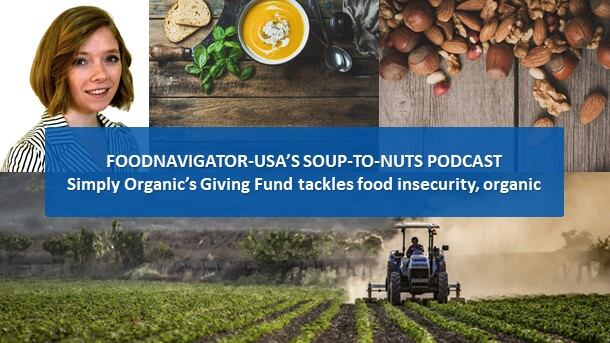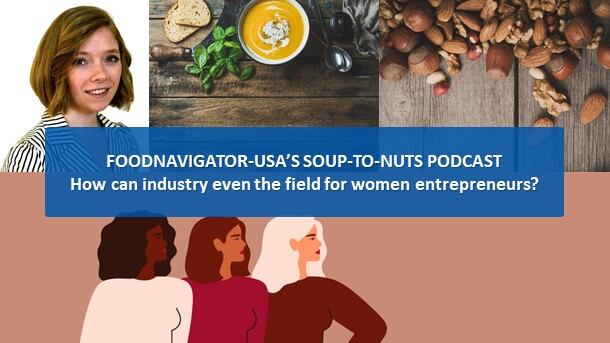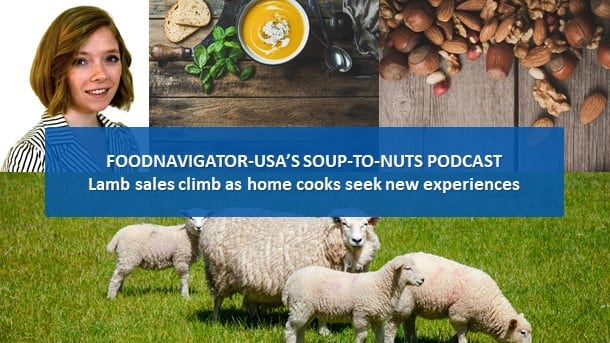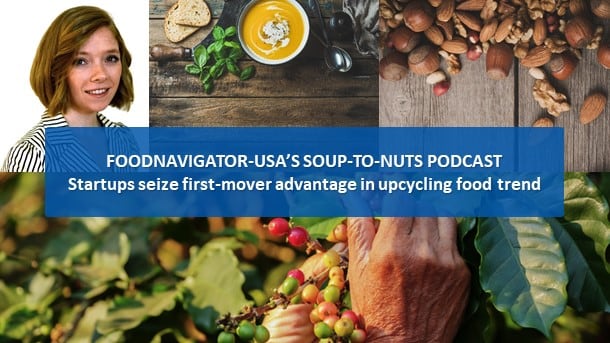Recognizing the dramatic impact of the pandemic on food insecurity, which Feeding America estimates has touched 17 million more people in the US since the outbreak began for a total of 54 million people nationwide, Simply Organic increased its giving by $50,000 during this grant cycle – bringing donations from the Simply Organic Giving Fund to more than $2 million over the past 20 years.
In this episode of FoodNavigtor-USA’s Soup-To-Nuts Podcast, Simply Organic CEO Tony Bedard shares why Simply Organic is focused on alleviating food insecurity, and how its unique approach to selecting grant recipients is also advancing organic and empowering Americans with more than food. He also shares how doing good has helped Simply Organic’s business by appealing to conscious consumers and recruiting high-quality talent. We also hear from two of the recipients – MEANS Database and the Emergency Food Network’s Mother Earth Farm – about the impact of Simply Organic’s grants and the work they are doing.
[Editor’s note: Never miss another episode of FoodNavigator-USA’s Soup-To-Nuts podcast – subscribe today.]
Understanding the scope of food insecurity in America
Long before the pandemic made food insecurity a household concern in America and even before the rise of conscious consumerism pushed more companies to take up or more loudly promote their social missions, Bedard explains Simply Organic has been quietly and steadily giving to organizations that support organic agriculture and feeding those in need.
“Our company operates under the idea that doing good works … [and] business can be a great force for change,” but to generate the most impact the effort should align with the brand and company values, Bedard said. Which is why, he added, in 2018 the company shifted its giving fund, founded in 2001, from a focus on organic agriculture to also include food insecurity.
“Even before the pandemic, one in eight Americans were determined to be food insecure and one in six children and those numbers have only grow. And when you look at the impact, especially on children, the impact on education, their physical well-being, their emotional development. These are all things that resonate with us as a company, and what’s unique about our giving is that it is focused on organic, which we believe is an even better way to approach nutrition and welfare,” Bedard said.
Creating a win-win for those in need and businesses
To ensure every dollar has the biggest impact possible, Bedard says Simply Organic’s Giving Fund applies a “robust” application review process that places a heavy emphasis on shared values and a track record of success.
In addition, the company considers the level of recipients' professionalism and if they are “buttoned up,” as well as the impact that Simply Giving’s donation will make, including the extent to which other resources are available. It also considers how recipients can help Simply Organic better connect with consumers and ultimately grow – which in turn allows the company to give more in coming years.
“It is about our marketing campaign. You know, it’s not just about great tasting herbs and spices, right? It’s not just about recipes .I contend that … you’ve got to meet those elements of price and service and quality and you’ve got to do all the basic fundamentals of good business, and good work, and bringing good CPG products to market. But when the decisions get made by consumers … where we win is the way we do our work,” Bedard explained.
“In the organic and natural products industry, people are more inclined to think about this and vote with their dollars,” he added. “This is a differentiator for us but also an ante to play the game.”
The pandemic elevated importance of giving
While conscious consumerism has been on the rise for several years, Bedard says the pandemic accelerated it – like so many other trends – making Simply Organic’s Giving Fund and other environmental, social and governance pillars even more crucial.
“People are cooking at a level that they never have before, so there’s a heck of a lot more people interested in” the ethics of how spices our sourced and how companies support communities, Bedard said. “Frontier has been around since 1976 and we believe we’ve been doing it the right way, but a lot of other people are catching on and recognize that a lot of spices come from the developing world and if its not done correctly you can have systemic and huge impacts on these farming communities.”
He added during the pandemic consumers have had more time to reflect on their values and dig into how companies align with them.
“They want flavor, they want the aroma, they want all of the organoleptic elements that make it a great spice, but they also want to feel good and that they’re not taking advantage of a farming community,” he said.
Just as the Simply Organic Fund helps connect the company to consumers, Bedard says it also helps bring together the company’s employees by creating shared values they can be proud of and gives Simply Organic a point of differentiation when it comes to recruitment.
Mother Earth Farm gives food & job, life skills
As Bedard noted, the recipients of this year’s Simply Organic Giving Fund all are focused on alleviating food insecurity, but they also tackle other macro social and environmental challenges which can contribute to food insecurity directly and indirectly.
For example, Emergency Food Network’s Mother Earth Farm, which received $50,000 from Simply Organic, produces more than 150,000 pounds of organic food for area food pantries, shelters and food sites, and it does so with the help of incarcerated women through the Purdy’s Women’s Program.
As Claire Aiijan, the development manager with Emergency Food Network, explains, the partnership helps the women learn job and life skills that will support their reentry into society so that they hopefully do not need to rely on the same services they once provided.
MEANS connects those who have with those who don’t
Another recipient of Simply Organic’s Giving Fund this year is MEANS Database, which received $15,000 to help it simultaneously tackle food insecurity and food waste by connecting excess organic food with those who need it.
As Maria Rose Belding, a co-founder of MEANS Database explains, the funds will help the startup recruit more co-ops and natural food stores to donate through its system, which connects donors with recipients one-on-one with an automated communication alerts.
“What we’re excited about with Simply Organic, among other things, is we have not really had the opportunity to do a lot of outreach to natural food stores or co-ops or organic stores before, because we just haven’t had the time or funding to do,” Belding said.
She also noted that the risk of waste is higher in these settings because there are no preservatives and product spoils more quickly, and that those in the natural and organic setting care greatly about the risk of waste.
Belding is also quick to reassure co-ops, grocery stores and other professional food manufacturers interested in the MEANS Database not to worry about liability or taking on extra costs sometimes associated with donations. She explains that because all the recipients are certified non-profits, donors are protected from liability. Likewise, it is up to the recipients to claim the food by a time determined by the donor – so there is no risk of employees incurring overtime or transportation costs. In fact, she says, working with MEANS Database could actually help organizations save money by reducing their trash fees.
She also reassures donors that someone will want their food – whatever it is.
If retailers, food service providers or co-ops listening are interested but have other questions, Belding encourages them to reach out via email at hello@meansdatabase.org or text (202) 449-1507.
Recipients show the potential for impact across the value chain
The other recipients of Simply Organic’s Giving Fund including Feed Iowa First, which uses donated plots of land to produce organic food for local pantries, Matthew 25, which as part of its mission runs a ‘pay-it-forward’ café that gives people access to healthy organic food even if they can’t afford it, and Project Worthmore, which serves Denver-area refugees through a training farm and culturally relevant food access program.
Reflecting on the scope of the Simply Organic Giving Fund’s reach and the impact it has had, Bedard encourages industry players to look at different ways they can positively impact change. Even if they can’t donate $150,000, he said many can still make a dramatic impact through micro-loans, in-kind donations, mentoring and even providing connections. By working together, he says, industry can help cushion the blow of the pandemic and alleviate food insecurity in the coming years.
Likewise, those who are interested in learning more about Simply Organic’s campaign or applying during the next round can learn more at https://www.simplyorganic.com/grant-application.




